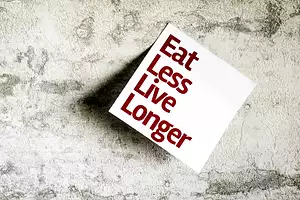A recent study in the American Journal of Clinical Nutrition helped give more ammunition to people who encourage a healthy breakfast.
At the University of Missouri, researchers studied 20 teenage girls who were overweight. After evaluating their individual breakfast habits, the girls were divided into three groups. One group consumed approximately 13 grams of protein at breakfast, usually in cereal, a second group consumed 35 grams of protein (beef and eggs), and a third group skipped breakfast entirely for a 6-day period.
At the conclusion of the 6-day period, each of the girls participated in a full day of testing. The day included an unlimited “all you can eat” style dinner, which was comprised of a variety of convenience and snack foods. Choices included microwave pizza pockets, cookies, cakes, yoghurt and sliced apples.
Results of the study indicated that the group who consumed the high protein morning meal ultimately ate less than the other groups, when calories were counted. Not only did they consume fewer calories, they also tended not to overindulge on high sugar and high fat snack foods, as compared with the other two groups (lower protein and skipping breakfast).
Researchers emphasized that skipping breakfast did not ever correlate with fewer calories during the day. In fact, the opposite was consistently true, because skipping breakfast frequently led to overindulging throughout the day.
Consuming the high amount of protein that the study was based on is not necessarily the answer to the breakfast meal, but choosing high protein, low calorie options and never skipping breakfast is a very healthy habit. It makes us feel fuller and more satisfied, and helps to prevent “sugar crashes” that are common when one consumes sugary breakfasts or skips the morning meal entirely.
Most women, at least those between the ages of 19 and 70 years old, should aim to consume approximately 45 grams of protein throughout the course of the day. This amount can be divided among the three meals and any snacks that are consumed. Making sure that you also get plenty of fibre and fluids, as well as healthy fats can lead to a very healthy lifestyle and eating pattern.
As well as a high-protein breakfast, consider these five important tips when aiming to reduce overindulging on snacks later in the day:
SOURCES: https://www.prevention.com/food/healthy-eating-tips/high-protein-breakfasts-reduce-snacking-and-binging-later#ixzz2X3FkO8Lp; Image courtesy of marin / FreeDigitalPhotos.net









Comments